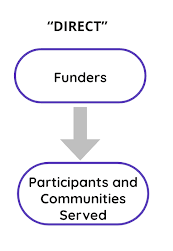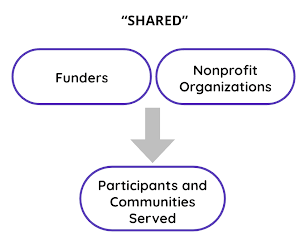This is a guest blog by Listen4Good, an organization that supports nonprofits in gathering and analyzing feedback from their community. Published 7/24/2025.
High-impact philanthropy requires more than good intentions. It demands clear goals, continuous learning, and the discipline to make evidence-based decisions. Community feedback can be a key ingredient in supporting this practice.
This blog, co-authored with Listen4Good (L4G), draws on their work supporting over 1,300 organizations and 145 funders in embedding feedback into practice. Listen4Good explains why incorporating community feedback into your giving strategy is not just a best practice but a necessity for staying grounded and making a real difference.
Why Community Feedback Matters
When done well, community feedback enables institutional grantmakers and individual donors to stay informed about evolving needs in ways that can increase the impact of funders’ grantmaking. Gathering community feedback – in collaboration with grantees – helps funders ensure their donations are focused on solutions to the needs that matter most to communities. Listening to community voices can also build trust between funders, nonprofits, and the communities they serve in ways that can help address systemic problems. Finally, when funders don’t presume to have all the answers and instead seek and center the perspectives of those most affected by their grants, they shift power to communities.
At its core, community feedback requires listening well to those most affected by a funder’s actions. But despite widespread interest in listening across the sector, much of the feedback that funders gather is not representative, goes unused, or feels one-sided to those providing it. Here’s how funders can listen better by understanding how and when to listen.
How to Integrate Community Feedback: Two Models
Funders have options for how to listen. Choosing between models depends on your proximity to the community, available resources, and the historical level of trust between you and the community.
Direct Listening: Gather feedback directly from community members. This approach provides unfiltered insights and builds proximity to community needs. However, it requires a strong readiness to navigate power dynamics and can be resource-intensive.
When to Integrate Community Feedback
Effective listening integrates community feedback at multiple points:
- Before: Gather input when designing a strategy to surface unmet needs and community priorities. What services do community members wish were available?
- During: Listen as programs are implemented to assess whether services are meeting needs and are structured as effectively as possible. Are people finding that their needs are being met? Would they recommend the service?
- After: Collect feedback on outcomes and experiences to understand how community members are benefiting from investments in programming. How are community members different as a result of engaging in supported services?
Five Practices for Effective Community Practice, or Listening Well
- Clarify your purpose: Define why you are gathering feedback and how you will use it.
- Minimize power imbalances: Create neutral and accessible environments where those who benefit from services can offer feedback without risk from those who fund them.
- Support the work: Provide nonprofits with the financial and expert resources to gather and use feedback effectively.
- Be intentional about building trust: Use methods and messaging to encourage honest, representative responses and build trust through your outreach and engagement.
- Act on what you learn: Close the loop by applying feedback to strategic decisions and sharing back what you heard and are doing in response.
Funders who listen well are better positioned to achieve their social impact goals with clarity, focus, and accountability.
About Listen4Good:
Listen4Good supports nonprofits in gathering and analyzing feedback from their community and funders in convening participating nonprofit leaders, and using community trends data to inform grantmaking. Since 2016, Listen4Good has supported over 1,300 organizations through its capacity-building programs. Listen4Good was initially incubated by the funder collaborative Fund for Shared Insight but became an independent project in 2023. Melinda Tuan, senior advisor to CHIP, serves as managing director of Fund for Shared Insight. To explore more resources and tools for building high-quality feedback practices, visit listen4good.org.


